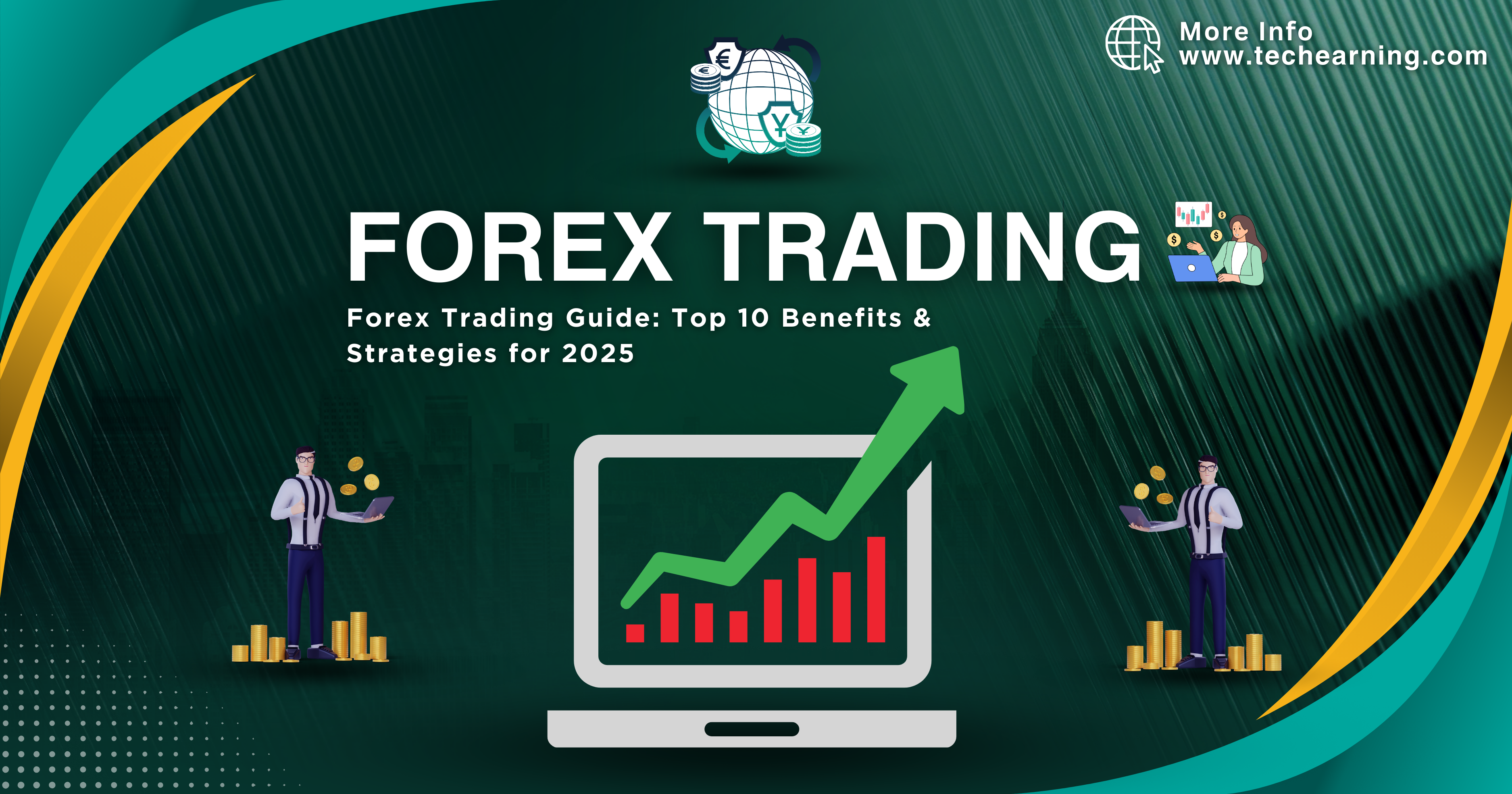
Forex Trading Guide: Top 10 Benefits & Strategies for 2025
Introduction
Forex Trading is one of the largest and most liquid financial markets in the world, with a daily trading volume of over $7 trillion. It offers traders the opportunity to profit from currency price fluctuations. Whether you are a beginner or an experienced investor, understanding Forex Trading is crucial to making informed decisions and maximizing your profits.
In this article, we will explore what Forex Trading is, how it works, and why it is one of the best investment opportunities in 2025.
What is Forex Trading ?
Forex Trading, also known as foreign exchange trading or currency trading, is the process of exchanging one currency for another to make a profit. It operates through a decentralized global network where transactions happen electronically between banks, brokers, and traders.
How Does Forex Trading Work ?
Global Currency Market is based on currency pairs, where one currency is exchanged for another. The most commonly traded currency pairs include:
- EUR/USD (Euro / US Dollar)
- GBP/USD (British Pound / US Dollar)
- USD/JPY (US Dollar / Japanese Yen)
- USD/INR (US Dollar / Indian Rupee)
Traders speculate on whether a currency’s value will rise or fall compared to another currency. If they expect a currency to increase in value, they buy it. If they expect it to decrease, they sell it.
10 Powerful Benefits of Forex Trading
24/5 Market Availability
Unlike the stock market, which has fixed trading hours, the Forex market operates 24 hours a day, five days a week. This allows traders worldwide to participate at any time.
High Liquidity
Forex Trading is the most liquid financial market in the world. High liquidity means you can buy and sell currencies instantly without significant price fluctuations.
Low Transaction Costs
Most Forex brokers charge minimal commissions and spreads, making Forex Trading more cost-effective than stock trading.
Leverage for Bigger Profits
Forex brokers offer leverage, which allows traders to control large positions with a small investment. For example, with a 1:100 leverage, you can trade $10,000 with just $100.
Flexibility in Trading Strategies
Forex Trading offers various trading strategies, including:
- Scalping – Making small profits from quick trades.
- Day Trading – Buying and selling within the same day.
- Swing Trading – Holding trades for days or weeks.
- Position Trading – Long-term investments based on fundamental analysis.
Easy Market Access
With just a computer, smartphone, and internet connection, anyone can start Online Currency Exchange from anywhere in the world.
Potential for High Profits
Since the Forex market is volatile, traders can make significant profits in a short time. However, this also comes with risks.
No Middlemen
Unlike stock markets, Forex Trading does not require brokers or intermediaries, allowing for direct transactions between buyers and sellers.
Diverse Trading Options
Traders can invest in various currency pairs, commodities, and indices to diversify their portfolio and minimize risks.
Opportunities in Both Rising and Falling Markets
In Forex Trading, you can profit in both bullish and bearish markets by either buying (going long) or selling (going short).
Key Concepts in Forex Trading
Pips and Spreads
A pip is the smallest price movement in Forex, while the spread is the difference between the buying and selling price.
Margin and Leverage
- Margin – The minimum amount required to open a trade.
- Leverage – Allows traders to amplify their trading positions.
Risk Management
To succeed in Forex Trading, it’s essential to implement risk management strategies:
- Set Stop-Loss and Take-Profit Orders
- Avoid Overleveraging
- Use Proper Position Sizing
Risks of Forex Trading
While Forex Trading is profitable, it comes with risks:
- Market Volatility – Sudden price changes can cause losses.
- High Leverage Risks – Can increase both profits and losses.
- Psychological Stress – Emotional trading leads to bad decisions.
How to Start Forex Trading in 2025
Choose a Reputable Forex Broker
Select a broker that is regulated, reliable, and offers low spreads. Some popular brokers are:
- XM
- IC Markets
- OctaFX
- Exness
Open a Trading Account
Register with your broker, complete the KYC process, and deposit funds. Many brokers offer free demo accounts for beginners.
Learn Technical and Fundamental Analysis
Use technical indicators like Moving Averages, RSI, MACD, and Bollinger Bands to analyze trends. Also, follow economic news and global events that impact currency values.
Practice on a Demo Account
Before trading with real money, practice on a demo account to understand market movements and trading strategies.
Develop a Trading Plan
A solid trading plan includes:
- Risk Management Rules
- Entry and Exit Strategies
- Clear Profit Targets
Forex Trading vs. Stock Trading
| Feature | Forex Trading | Stock Trading |
|---|---|---|
| Market Hours | 24/5 | Limited |
| Liquidity | High | Moderate |
| Leverage | High | Low |
| Transaction Costs | Low | Higher |
| Volatility | High | Moderate |
Conclusion
Forex Trading is an exciting and profitable investment opportunity, but it requires knowledge, discipline, and strategy. Whether you are a beginner or an expert, continuous learning is essential for success in the Forex market.
For more insights on trading and investment strategies, visit our Home Page for expert guidance and in-depth resources.